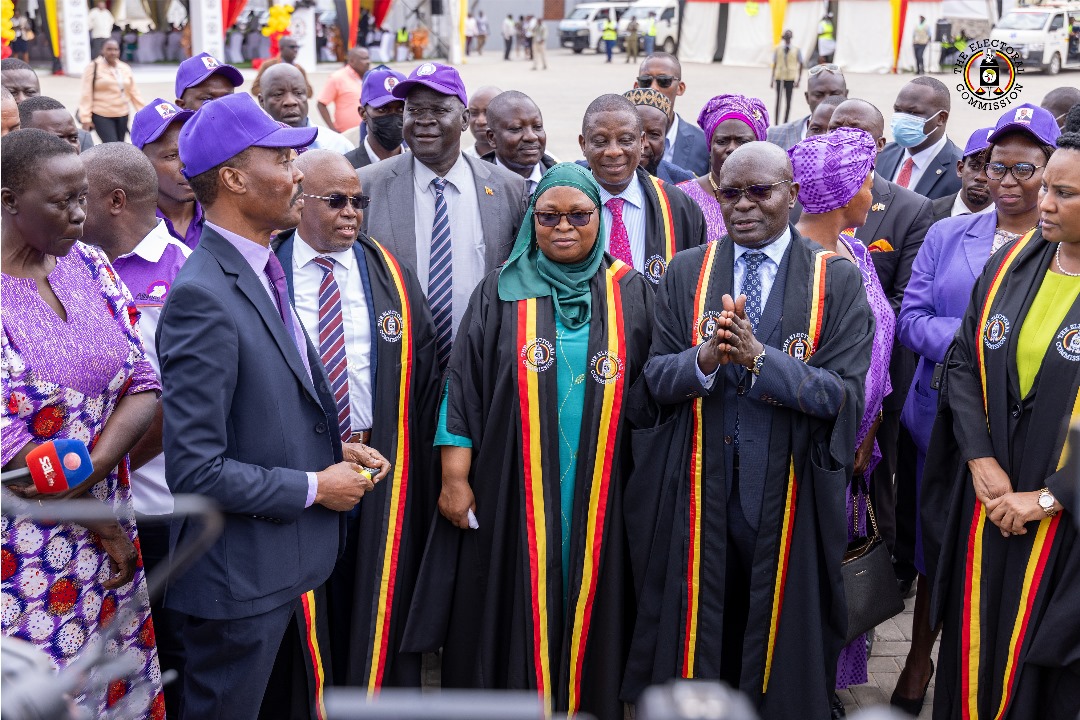Deputy Speaker urges review of sunscreen taxes, citing life-saving benefits for vitiligo patients
The Deputy Speaker's remarks came during a meeting at Parliament, where he received a petition from members of the Vitiligo Association of Uganda.

Deputy Speaker of Parliament, Thomas Tayebwa, has called for an urgent review of the current taxation on sunscreens, arguing that the high duties unfairly burden individuals living with vitiligo, for whom these products are not a luxury but a necessity.
The Deputy Speaker’s remarks came during a meeting at Parliament, where he received a petition from members of the Vitiligo Association of Uganda. The association highlighted the significant challenges and discrimination faced by individuals with vitiligo due to their skin condition.
Currently, the government classifies sunscreens as cosmetic products, subjecting them to substantial taxes. However, Tayebwa emphasized that for people with vitiligo, sunscreen plays a crucial role in protecting their often more vulnerable skin from sun damage.
“Although the government views them as cosmetic products, and thus the need to impose taxes on them, the same sunscreens are life-saving creams for people living with vitiligo,” Tayebwa stated during the meeting.
In response to the concerns raised, the Deputy Speaker has directed the Committee on Health to engage with the Ministry of Finance. The objective is to explore mechanisms that can reclassify sunscreens used by individuals with vitiligo and albinism as medicinal items, thereby exempting them from current luxury taxes.
“So maybe, the Committee can interact more and among the people will be the Commissioner of Taxes, Moses Kagwa from Ministry of Finance and the Minister for Finance, so that we put it at the forefront and we see which mechanism can we do that for you, you get an exemption,” Tayebwa explained.
He proposed potential solutions, including tax exemptions if sunscreens are purchased through the association or if they are procured and distributed by the National Medical Stores as part of essential medication.
“We cannot fail to get a mechanism, yes, or we say through national medical stores and they are provided as part of medication to these people. Because you’ll find most of these people can’t even afford,” he added, underscoring the financial burden on affected individuals.
Tayebwa expressed his dismay at the continued taxation, stating, “I am concerned on the issue of taxes on sunscreens; we still have those taxes. I think that should be an issue we should handle immediately when we are handling tax bills.”
He urged the Chairperson of Parliament’s Health Committee to expedite the review of the petition, with the explicit aim of incorporating the proposed tax revisions into the upcoming tax bill.
“Chairman if you could finish your petition early, so that we ensure this is incorporated in the next tax bill. Sunscreens for people. I think the issue was on how best it is not abused by others because there are those who use it as a luxury, but for you, it’s medication,” Tayebwa concluded.
The move signifies a potential shift in policy, recognizing the vital health implications of sunscreen for a vulnerable population group and aiming to alleviate their financial strain.







